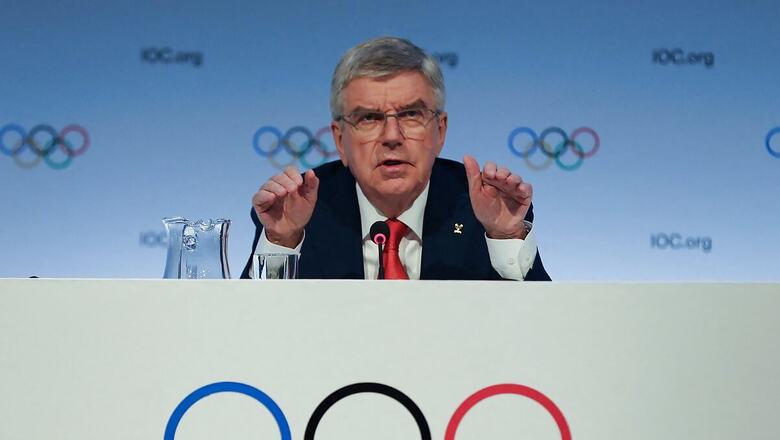
views
Several International Olympic Committee members called on Sunday for president Thomas Bach to stay on after his second term ends in 2025, and continue for a third one.
Elected in 2013, Bach has to step down in 2025 under current Olympic Charter rules, following a first eight-year term and a second four-year term.
The number of terms were limited by his predecessor Jacques Rogge to avoid lengthy tenures, such as that of former president Juan Antonio Samaranch, who was in charge for 21 years from 1980 to 2001.
“You have shown us the best way to go forward,” IOC member Luis Mejia Oviedo told Bach, as he proposed him for a third term.
“We have to look after this movement. That is why I would like to put forward this approach.”
Several other members, including Japan’s Morinari Watanabe, also called on Bach to stay on and asked for a Charter change.
It is unlikely, though, to happen during their meeting in the Indian financial capital, as such changes need to be proposed in writing and handed in about 30 days prior to an IOC session.
Bach, a German lawyer, said he was honoured by the calls but refused to say if he planned to stay.
“I can summarise these interventions and first of all say thank you very, very much for your kind words of support,” Bach said. “These words of support are not only directed to me. They are directed to all of us.
“What made us to overcome the challenges we had was exactly this unity.”
“I will not hide they (comments of support) went straight to my heart. You know how much I always emphasise this unity and appreciate this support, this friendship and love.”
“You know that I am very loyal to the Olympic Charter.”
Since taking over, Bach has had to tackle a number of major crises, such as the Russian doping scandal following the 2014 winter Games in Sochi.
He also had to co-ordinate postponement of the Tokyo 2020 Olympics by a year due to COVID-19 as well as the fallout on world sport from Russia’s invasion of Ukraine.
The former Olympic fencing champion has also pushed through many major reforms aimed at making the bidding and organising for the Olympics less expensive and complicated, and more attractive, for future host cities.




















Comments
0 comment